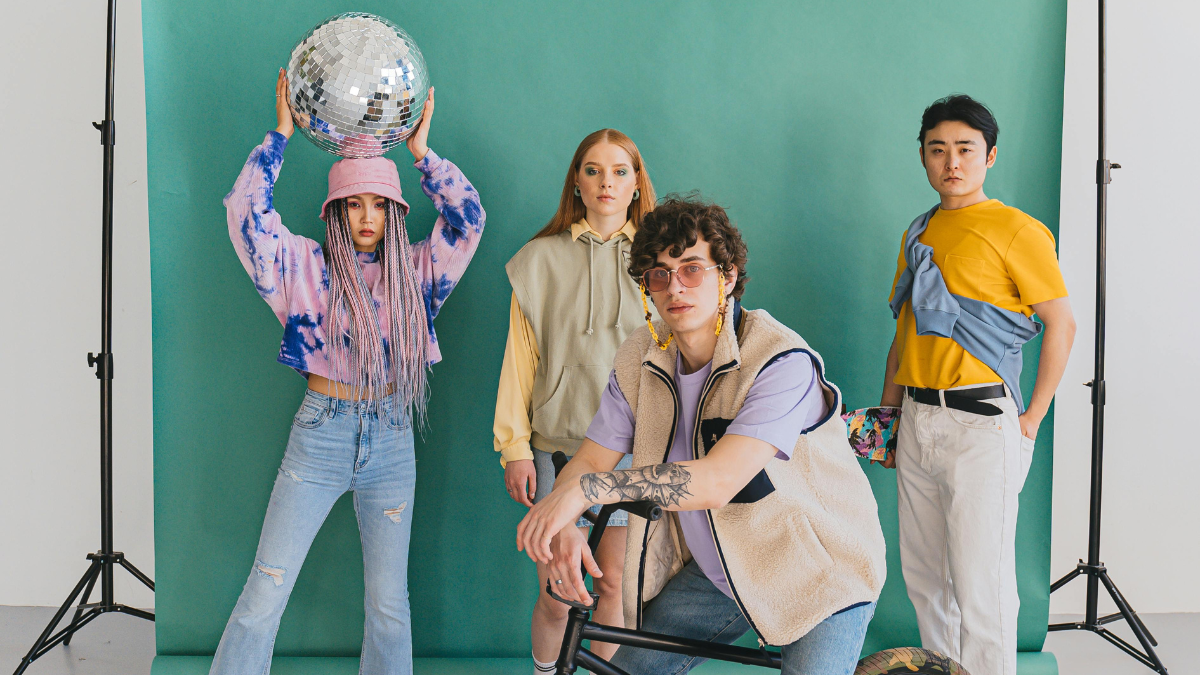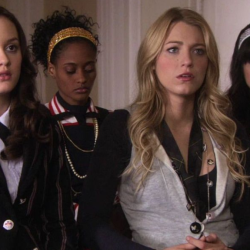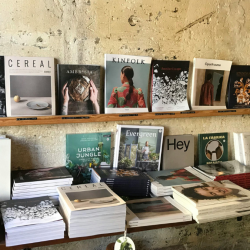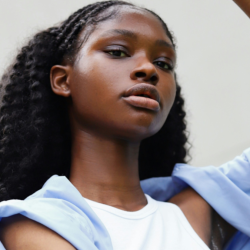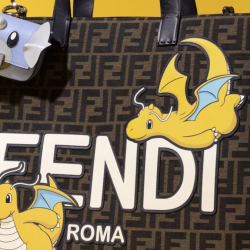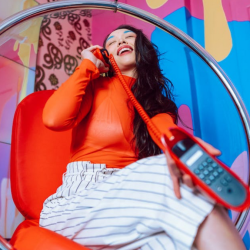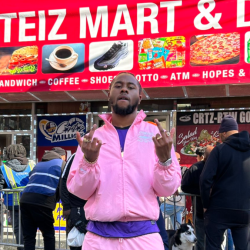2023 started like a post-pandemic hangover but as we shed our anxiety and headaches, we started to use what we’d learned and what we missed to define what’s next. Amongst the sea of change, we saw Twitter become X, we were asking ChatGPT to plan our holiday itineraries and witnessed Croc partnering with just about everyone.
There were new brands, new music and a revolving door of TikTok trends. Now we are asking what is coming next and who better to look towards than the next gen? So the Gen Z minds at Seed have shared their thoughts on what’s to come in 2024.
Anime infiltration
Thoughts from Antonia Da Costa, Account Manager
I think that next year will be the year for anime and as it grows, it will infiltrate culture in the best way. This year, anime collaborations caused ripples in fashion with the most recent being from high-end, luxury brands like Jujutsu Kaisen X Dolce & Gabbana, Sailor Moon X Jimmy Choo, and Loewe X Howl’s Moving Castle. As anime culture becomes more mainstream, we’ll see an increase in more accessible brands tapping into collaborations to jump on the wave.
With an increased appreciation of trends such as quiet luxury and soft-girl, brands will move away from pulling inspiration from hardcore, cyber-wave anime aesthetics and more towards the ones that are cute or simply make you ‘feel something’. We’ve already seen examples of this like Nike X Powerpuff girls.
While there is a lot of opportunity to integrate the anime art style into brand and advertising aesthetics, it does come at a high risk of falling flat. Associating with existing anime IPs allows brands to tap into a strong, established fanbase, but it has to be done with respect for the plots, characters, and storylines; trying to recreate the aesthetic without an established world around it could be perceived as opportunistic.
Social-first artists
Thoughts from Jess Powell, Campaigns Assistant
This is the time for DIY music artists, those who promote themselves on social platforms (particularly TikTok) and actively partake in community spaces to build their brand. We have seen Raye calling out her label for mistreatment or the surge of support behind the #freebritney movement, both demonstrating Gen Z values: we’re democratic and access driven and we’ll challenge the gatekeepers of traditional institutions. Gen Z is happy to move away from the ‘big evil labels’ and invest in an artist. With the all-important social algorithm, having a large social media presence offers a significant advantage in ‘making it’.
Today’s audience is hyper-engaged and wants to be a fan of the artist as a person as well as their music, using social media as a window to their personality. To reach new audiences, artists have to play into the hands of the algorithms, meaning to make it you need to be sharing more than just your music.
Girlypop D’n’B music
Thoughts from Anna Zakis, Campaigns Assistant
For me, 2024 is all about short, high-energy music, perfect to put on in a uni kitchen or your house share before a night out with all of your friends. Think Kenya Grace — Strangers. A lot of these artists have taken influence from pop icons such as Charli XCX, while the beats behind the tracks are inspired by classic UK drum and bass.
Fuelled by the resurgence of bedroom pop (music that can be easily produced with a DAW and midi keyboard), these artists are breaking through on TikTok and are not afraid to showcase the seemingly easy process of producing a tune.
The most popular artists are mainly women, as people like the contrast between the soft vocals versus high-energy track. In 2024 I expect to see more from PinkPantheress, who played at Reading + Leeds, and Piri, who collaborated with LOUD LDN.
The TikTok cutting room
Thoughts from Isabella Fernandes, Senior Account Executive
As an admitted Law & Order addict I’ve found comfort in its seasons and spin-offs, much to the irritation of my flatmates. Evidently, my watch history made me a prime target for unofficial, user-posted, Facebook-warped videos of the show set to odd background music (which I scroll through on my TikTok feed, despite full episodes being readily available online). TikTok has seen a surge in entire shows shared through bite-sized segments by individuals and established brands.
Paramount celebrated Mean Girls Day with 23 clips on an official TikTok channel in a noteworthy stunt to embrace its growing influence on how we watch.
Adam Faze’s claim of watching a film via TikTok clips sparked comment reactions all over the map, raising questions on whether we’re here for this unconventional movie-watching approach. Even smaller TikTok accounts are gaining millions of views by sharing clips. The essence of this TikTok craze isn’t just about accessibility; it’s about building anticipation and engagement. This trend isn’t about watching; it’s about a CTA (call-to-action) that makes you come back for more.
While TikTok offers a new way to watch and Gen Z are engaging with it, it’s unlikely to replace cinema or TV anytime soon.
Prepare to be cancelled
Thoughts from Amber-May Hutton, Campaign Assistant
Cancel culture is progressively getting worse. It’s good that Gen Z are challenging older generations and older ways of working but sometimes it feels like there isn’t room for mistakes or for people to change. Typically, it takes just one or two people to bring something to the attention of the masses and almost immediately everyone begins to criticise. Brands can’t always prevent being cancelled, but it helps to have an awareness of the ever-changing cultural shifts of Gen Z, and consider this when making posts and building campaigns.
Look to your entire team (including the younger and less senior members) to put forward their opinions and flag issues, problematic statements and problematic ethics. If a mistake is made, brands need to take it as an opportunity to learn and grow, some will hold on to that one mistake and not let it go, but the result could be a better brand with stronger values.
Featured image: Antoni Shkraba / Pexels

















